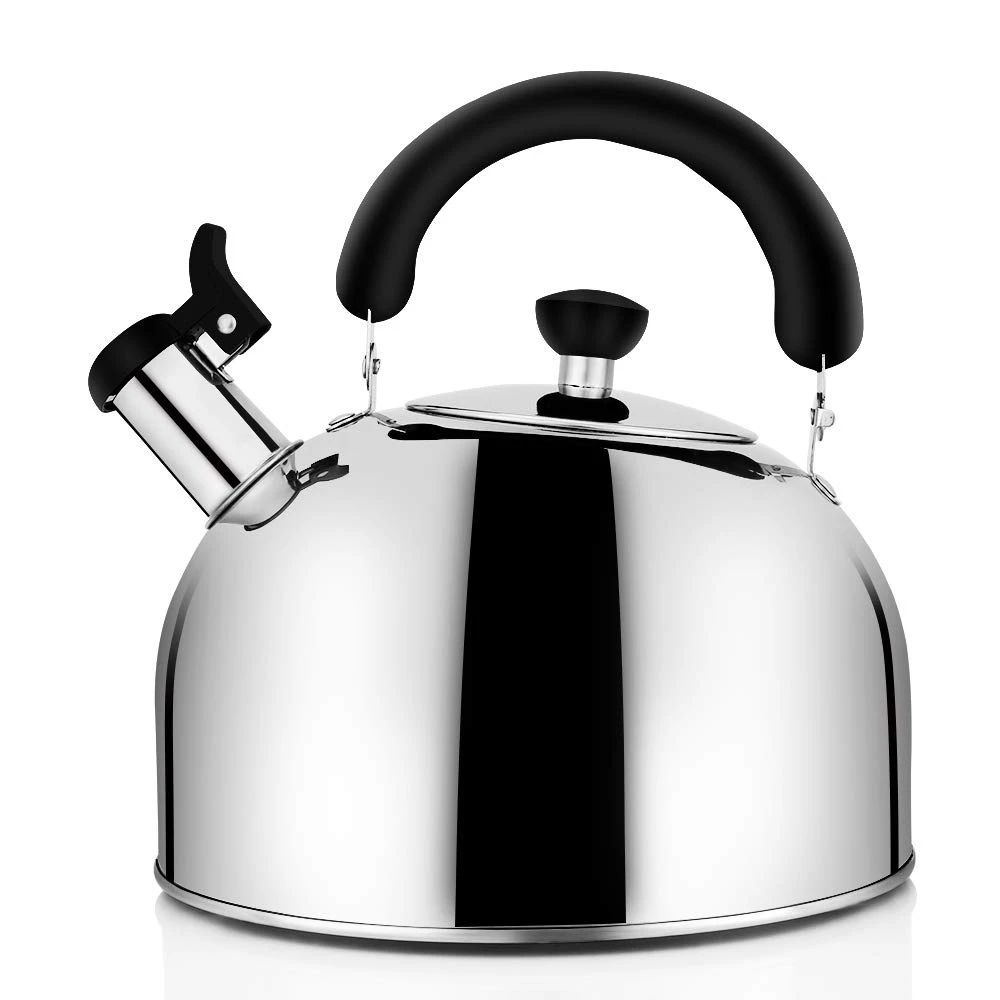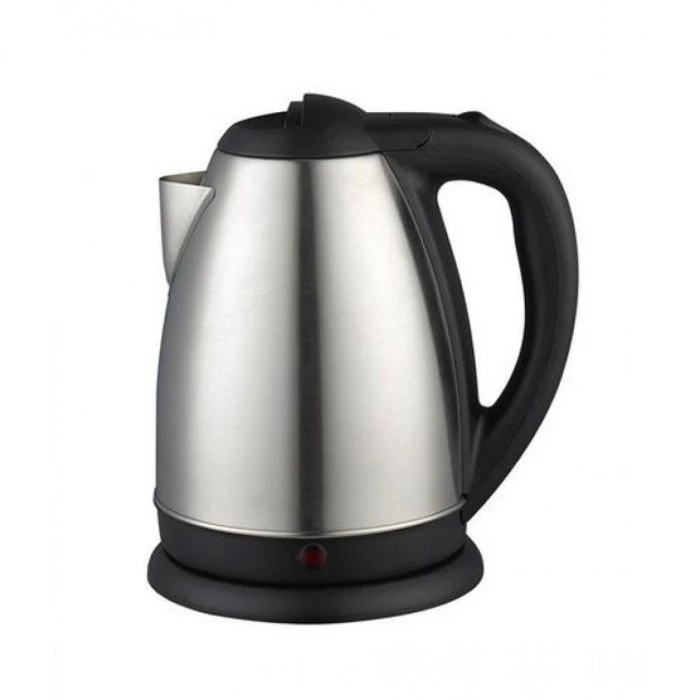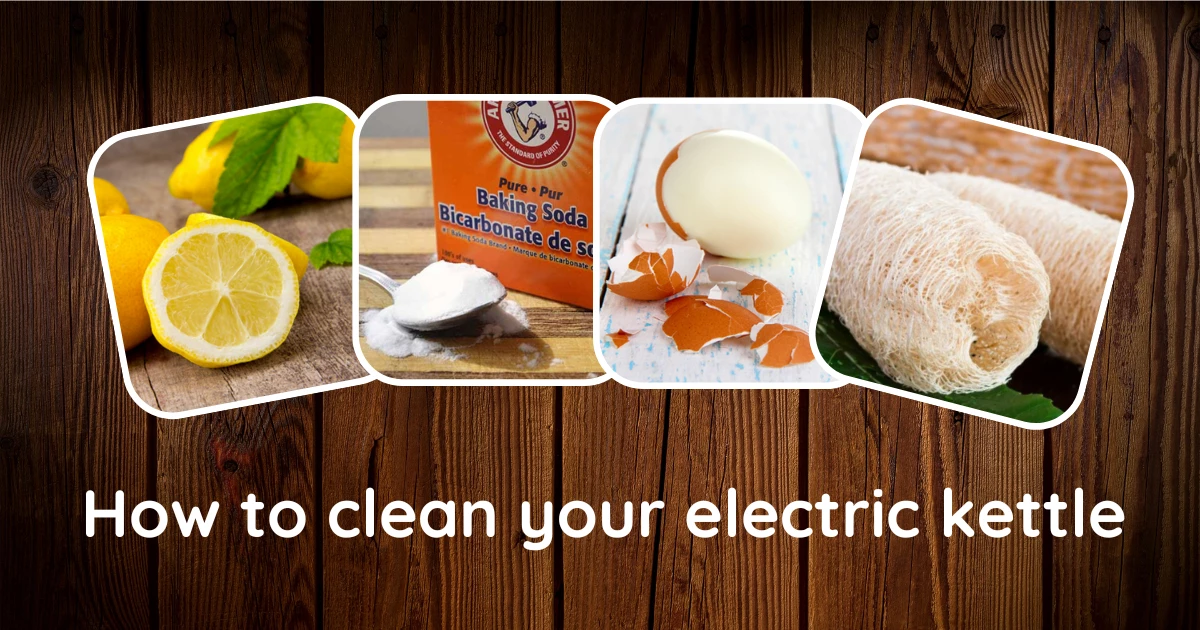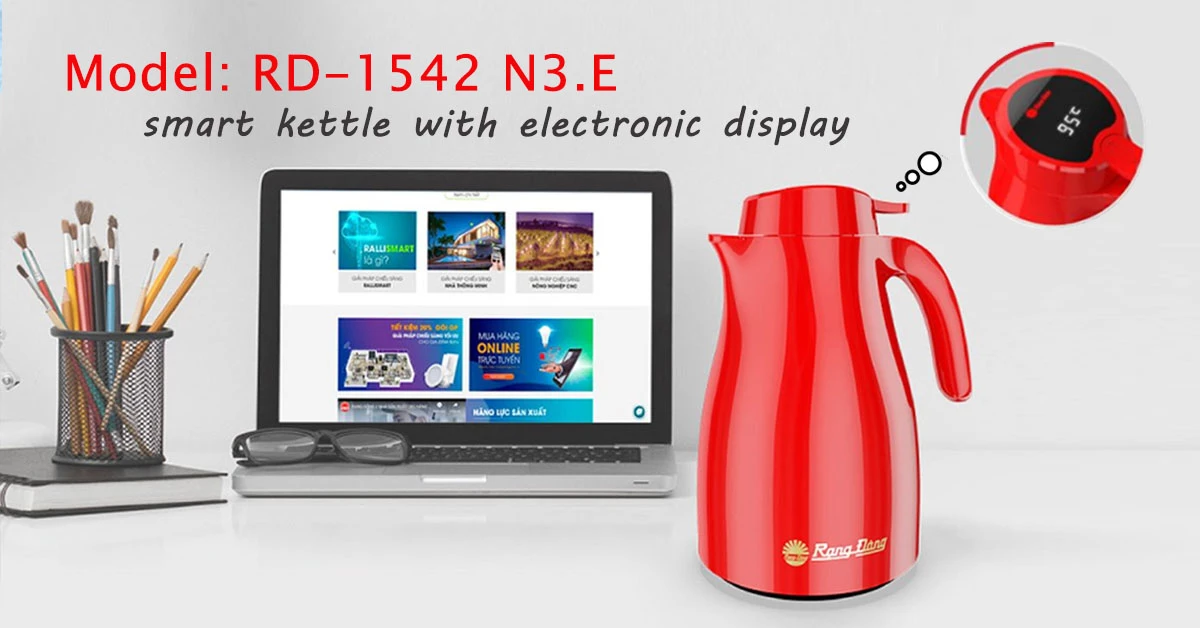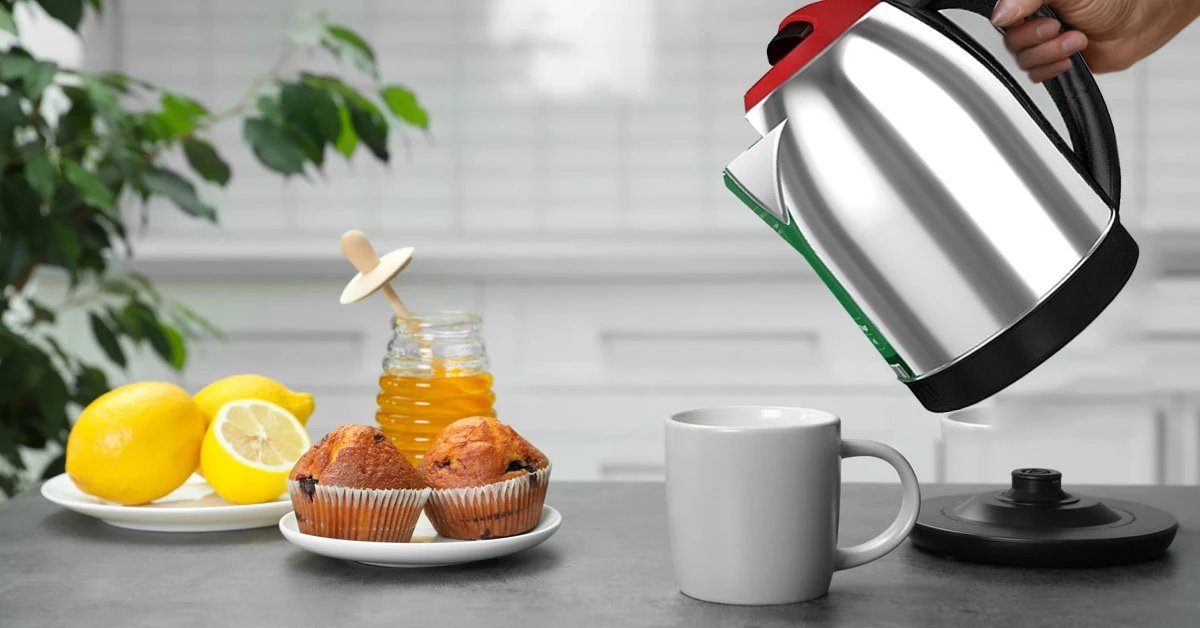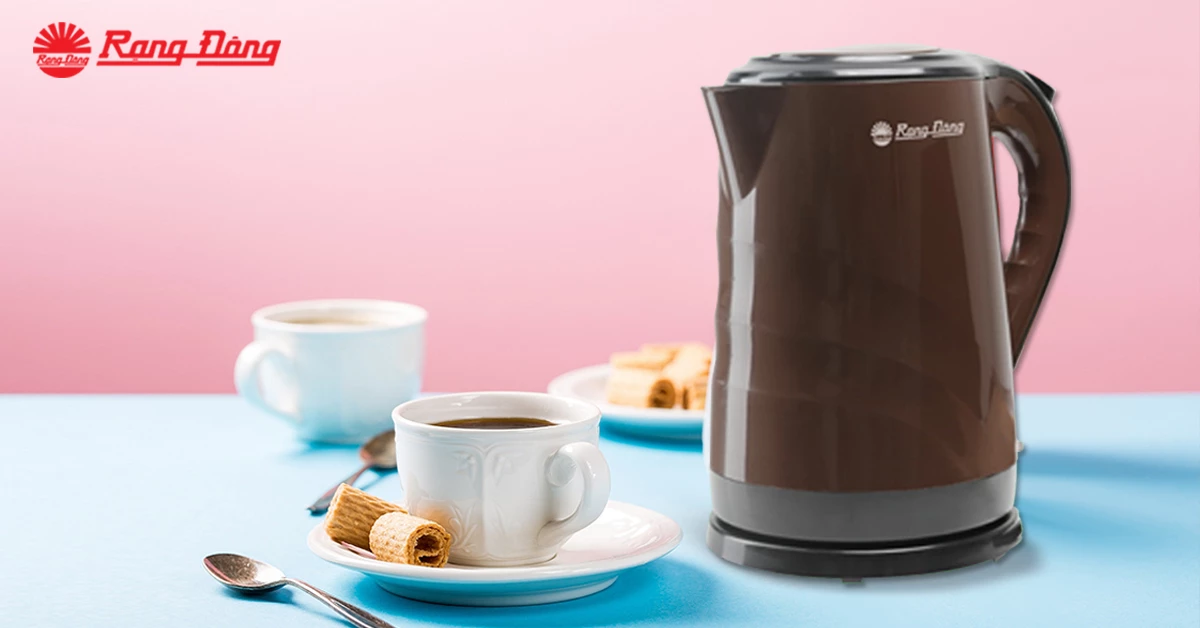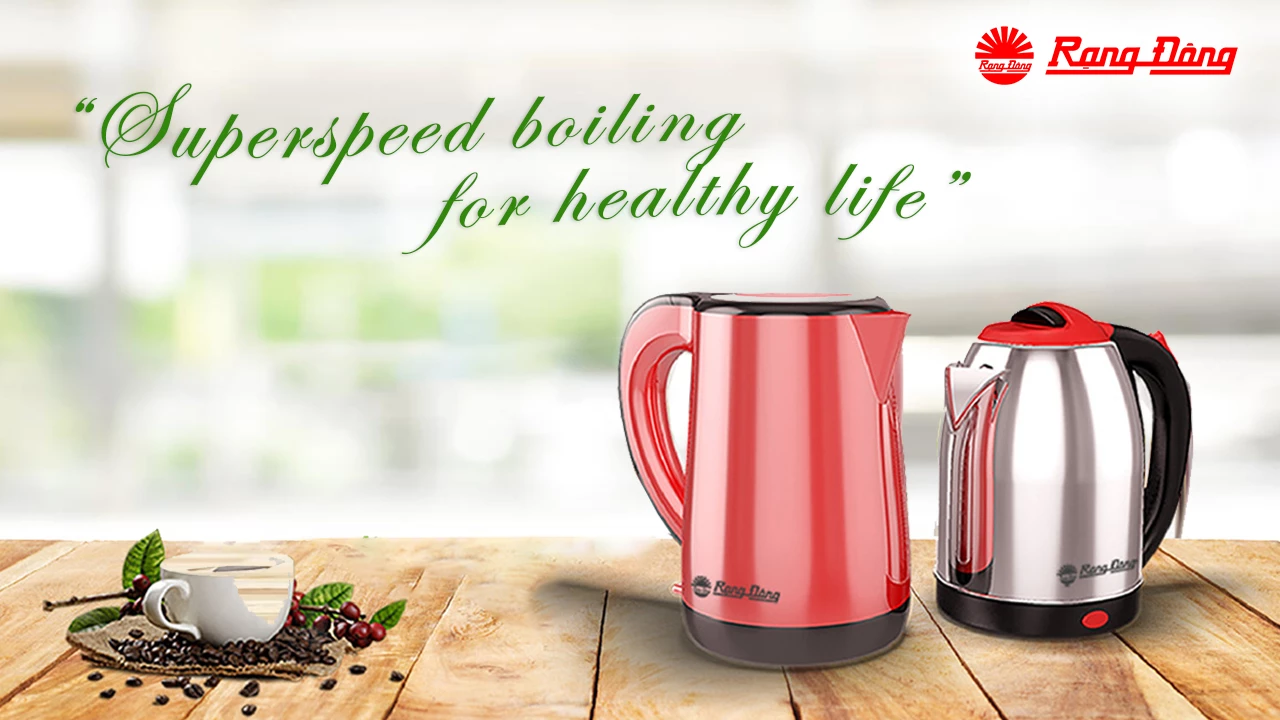Best Tips for Picking Stovetop Kettle or Electric Kettle For Tea
With the growing popularity of specialty coffee and tea, selecting a stovetop kettle or an electric kettle for tea is more difficult than ever. We've compiled some ideas to assist users to decide on either of them, based on what they plan to use it for and on individual requirements.
Difference between a Stovetop Kettle vs an Electric Kettle For Tea
At first glance, a stovetop kettle and an electric kettle for tea appear to have more in common than differences. Both of them boil water and have a spout. The essential difference, however, is in the manner in which they heat the water. The stovetop kettle for coffee, as the name suggests, requires an external heating source. This is going to be the stovetop in 90 percent of the cases. Electric kettles, on the other hand, require a power connection for boiling water instead.
An example of a stovetop kettle.
Comparisons between a stovetop kettle and an electric kettle for tea
It's difficult to establish if one is better than the other without considering why we're boiling water in the first place. If we're looking for a tea kettle, our need is highly different from that by a pour-over coffee enthusiast. What works for one person might not work for another.
The advantages and disadvantages of this classic design are listed below.
Advantages
Stovetop kettles create a rolling boil, which means they can be heated and maintained at a constant temperature, which is essential for serving coffee all day.
They have the capacity to heat water over the boiling point, which might be useful for preparing some varieties of tea.
They are convenient to carry along when we go camping since they do not require a power source. Simply place it over the campfire and, presto, hot water.
They do not have a heating element, which can be dangerous to our health if not properly maintained.
They are simple to clean since there are no electronics or heating elements, which means there are no hard-to-reach areas where limescale might collect.
Disadvantages
A stovetop kettle does not have the same amount of adaptability as an electric kettle, heating up quite slowly and it can only be utilized if an external heat source is available.
Stovetop kettles have their purpose, and for those who prefer a more hands-on approach to boiling water, these are the way to go. However, because there are no temperature controls, they are not suitable for specialty coffee. Although we may take the pan from the heat and allow it to rest for 30 seconds, this is not optimal for many baristas.
Electric Kettle For Tea: Plus and Minus
Electric kettle for tea has several advantages.
Advantages
Temperature control options allow us to heat water to the precise temperature we want, so the kettle gives a far broader range of functions.
The conventional stovetop variant boils significantly faster.
It may be used anywhere with a power outlet, making it ideal for hotel travel and more eco-friendly.
Disadvantages
Because of the heating element, cleaning may be more difficult.
So both the stovetop kettle and the electric kettle for tea have their plus and minus. Only by examining carefully our needs, we can decide which type of kettle we are to pick. From Rang Dong, Vietnam's leading manufacturer of vacuum flask products, we trust the suggested points above should be useful.
Should you have any questions, wish to share your ideas of vacuum flask or request a quotation, please send us an email to: export@rangdong.com.vn.
Our website: vacuumflask.rangdong.com.vn

